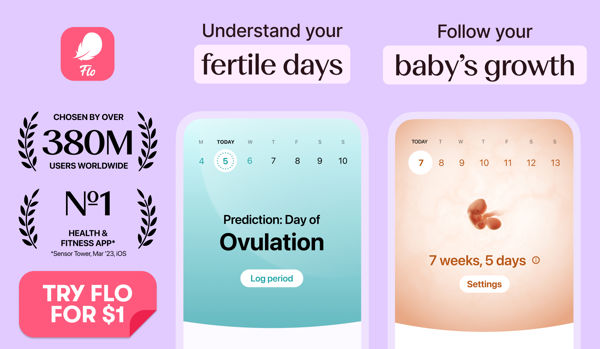Many different pregnancy symptoms can occur during pregnancy, from morning sickness to tension headaches, but one of the most irritating is restless leg syndrome. For those who have not experienced this particular brand of awful, many describe it as an overwhelming urge to occasionally move your legs, arms, or even the chest and face. Some state that they feel a tingling, burning, itching, creeping, crawling, or throbbing in that body part, most commonly in the legs.
The Most Annoying Part of RLS?
It most often acts up when trying to relax, rest, and sleep, and the best relief comes from movement.
Restless leg syndrome occurs in about 5% of all pregnancies, and there is no set “cause” of this syndrome, although there are some speculations about what might cause it. Most individuals experience restless leg syndrome more in the later parts of pregnancy, specifically the third trimester.
What Are the Causes of RLS?
Anemia
One suspected cause of restless leg syndrome is anemia, so it is helpful to get third-trimester work done to ensure that your iron levels look normal. Iron is beneficial for restless legs and crucial for postpartum recovery because even the most basic births have blood loss.
Some medications might cause restless leg syndrome, including antidepressants, antipsychotics, antiepileptics, antihistamines, dopamine receptor blockers, and beta-blockers.
Your Diet
Another possible cause could be diet-related. We know that most birthing parents are not partaking in alcohol as it is known to be harmful to babies, but if you are, stepping back from alcohol consumption could also help with the restless legs. Another big hitter is caffeine. We know that a lower amount of caffeine can be safe while pregnant, but if you are losing sleep due to restless leg syndrome, cutting back or cutting it out completely could help solve some of those problems. Don’t forget that chocolate has caffeine in it. It's much sneakier than drinking a daily cup of coffee.
A Vitamin Deficiency
Lastly, you may lack some vitamins and minerals if you are experiencing restless leg syndrome. Before adding anything to your daily intake, talk to your care provider. There are links to Vitamin B6 and Vitamin D being low and causing restless legs. You might also consider adding a magnesium supplement to help relax the muscles and alleviate the most severe symptoms.
How to Combat RLS
If you are experiencing restless leg syndrome, there are some things that you could consider to help with the symptoms. The first is sleep.
Sleeping
Getting better sleep and having a nighttime routine can help with restless legs. It is kind of ironic, right? Since restless leg syndrome usually takes people's sleep. However, having a good routine and doing your best to get extra rest can be beneficial in reducing symptoms.
Exercising
As with other pregnancy symptoms, exercise and body movement can be a game changer with restless legs. The body movement does not need to be excessive; yoga flows, dog walks, and swimming are all excellent low-impact activities and can help reduce or eliminate symptoms altogether. With this movement, whether through yoga or before and after your workouts, stretching can also help with restless legs. As I mentioned above, A simple stretch routine can be a great addition to a bedtime routine.
Relaxation
For some of my clients, having a relaxing routine can make all of the difference, and for others, it exasperates symptoms, but it might be worth a try. A nightly Epsom salt or Magnesium bath, massaging your legs with Magnesium lotion, and using heat pads on your legs can be beneficial. Plus, if it doesn’t work, it all feels nice. I even had one client who swore that a weighted blanket on her legs significantly reduced symptoms. We know how crucial relaxation is for pregnancy, so adding this piece would only help you through the rest of your pregnancy and form great routines that you can ideally pull into your postpartum.
Shifting Your Focus
If none of the above has done the trick, sometimes it is best to simply find distractions and keep your mind off the annoyance of restless legs. This might look like reading a book, watching your favorite show, eating a late-night protein snack, etc. Whatever will get your mind off of the restless legs is the right thing to do. Sometimes, enough distraction is what your body needs to stop the restless legs right in their tracks; other times, the distractions simply save your sanity. Whichever it is, having something that gets your mind off their annoyance is a great idea.
On the bright side, your restless legs will likely go away once pregnancy is over and your baby is in your arms. I know that can feel far away, and there is always a chance that it sticks around off and on throughout life, but most individuals who experience this discomfort state that they have relief once postpartum.







